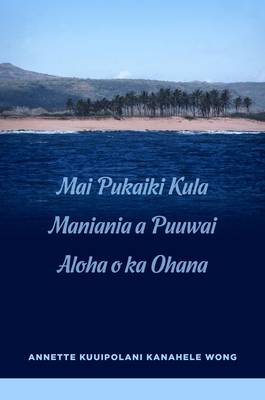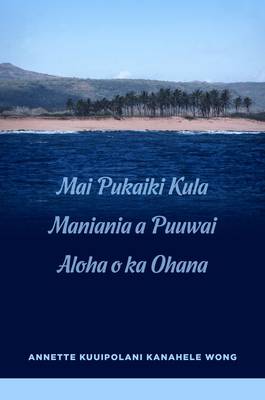
- Retrait gratuit dans votre magasin Club
- 7.000.000 titres dans notre catalogue
- Payer en toute sécurité
- Toujours un magasin près de chez vous
- Retrait gratuit dans votre magasin Club
- 7.000.0000 titres dans notre catalogue
- Payer en toute sécurité
- Toujours un magasin près de chez vous
Description
Aole no nui na moolelo i kakau a i hoolaha ia no Niihau. He puke keia e hoike ana i na moolelo oiaio o ka ohana Niihau. O ka mea i okoa ai o Niihau, he aina ku okoa oia nona iho, no ka olelo, ka noho ana, a me na moolelo o ka aina, pela i okoa ai. Ua kakau ia keia puke e ke kupa i hanai ia ma Niihau no iwakaluakumakahi mau makahiki. O na moolelo i kakau ia i loko o keia puke, he mau moolelo no na Niihau a mai ka waha pololei mai o na kupuna i aloha nui i ka aina a me na haku aina o Niihau. He puke keia no ka hoohanohano ana i na kupuna o Niihau, ka poe hoi no lakou ia mau moolelo i lohe mua ole ia e ka poe ma waho ae o Niihau. Ma o keia puke e ola mau ai ka leo ao o na kupuna no kakou a me na hanauna e hiki mai ana.
Not much has been written or published about the island of Niihau. Mai Pukaiki Kula Maniania a Puuwai Aloha o ka Ohana showcases authentic stories of the place, ones previously known only to that island's people. Niihau has a unique history and a self-sufficient community who speaks a distinct dialect of Hawaiian language. Annette Kuuipolani Kanahele Wong, a former resident of Niihau who lived there for the first twenty-one years of her life, has recorded stories passed down orally by Niihau's people, who cherished their land and respected the owners. By writing these stories, Wong hopes to perpetuate the voices of her ancestors whose remarkable tales teach us and the following generations about life on the island.Spécifications
Parties prenantes
- Auteur(s) :
- Editeur:
Contenu
- Nombre de pages :
- 174
- Langue:
- Anglais
Caractéristiques
- EAN:
- 9780824852924
- Date de parution :
- 31-05-20
- Format:
- Livre broché
- Format numérique:
- Trade paperback (VS)
- Dimensions :
- 152 mm x 226 mm
- Poids :
- 294 g

Les avis
Nous publions uniquement les avis qui respectent les conditions requises. Consultez nos conditions pour les avis.






